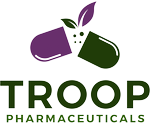Things you need to know about VITAMIN C
Vitamin C is needed for the body to develop and function properly. It plays an important role in immune function
Possibly Effective for;
1) Low levels of red blood cells in people with a long-term illness (anemia of chronic disease). Taking vitamin C supplements by mouth might help manage anemia in people undergoing dialysis.
2 Irregular heartbeat (atrial fibrillation). Taking vitamin C by mouth before and after heart surgery helps prevent irregular heartbeat after heart surgery.
3 Common cold. Taking 1-3 grams of vitamin C by mouth might shorten the course of a cold by 1 to 1.5 days. But taking vitamin C does not appear to prevent colds.
4 Limb pain that usually occurs after an injury (complex regional pain syndrome). Taking vitamin C by mouth after surgery or injury seems to prevent complex regional pain syndrome from developing.
5 Airway infections caused by exercise. Taking vitamin C by mouth before heavy physical exercise, such as a marathon or army training, might prevent upper airway infections that can occur after heavy exercise.
6 High cholesterol. Taking vitamin C by mouth might reduce low-density lipoprotein (LDL or “bad”) cholesterol in people with high cholesterol.
7 High blood pressure. Taking vitamin C by mouth might help lower systolic blood pressure.
8 Lead poisoning. Consuming vitamin C in the diet seems to lower blood levels of lead.
9 Wrinkled skin. Applying skin creams containing vitamin C seems to improve the appearance of wrinkled skin.
Special Precautions and Warnings
(1) When taken by mouth: Vitamin C is likely safe for most people. In some people, vitamin C might cause side effects such as stomach cramps, nausea, heartburn, and headache. The chance of getting these side effects increases with higher doses. Taking more than 2000 mg daily is possibly unsafe and may cause kidney stones and severe diarrhea. In people who have had a kidney stone, taking amounts greater than 1000 mg daily increases the risk of getting more kidney stones.
(2) When applied to the skin: Vitamin C is likely safe for most people. It might cause irritation and tingling. Pregnancy and breast-feeding: Vitamin C is likely safe to take by mouth during pregnancy in amounts no greater than 2000 mg daily for those 19 years and older and 1800 mg daily for those 14-18 years old. Taking too much vitamin C during pregnancy can cause problems for the newborn baby. Vitamin C is possibly unsafe when taken by mouth in excessive amounts.
(3) Pregnancy and breast-feeding: Vitamin C is likely safe to take by mouth during pregnancy in amounts no greater than 2000 mg daily for those 19 years and older and 1800 mg daily for those 14-18 years old. Taking too much vitamin C during pregnancy can cause problems for the newborn baby. Vitamin C is possibly unsafe when taken by mouth in excessive amounts.
(4) Infants and children: Vitamin C is likely safe when taken by mouth appropriately. Vitamin C is possibly unsafe when taken by mouth in amounts higher than 400 mg daily for children 1-3 years, 650 mg daily for children 4-8 years, 1200 mg daily for children 9-13 years, and 1800 mg daily for adolescents 14-18 years.
(5) Alcohol use disorder: People who regularly use alcohol, especially those who have other illnesses, often have vitamin C deficiency. These people might need to be treated for a longer time than normal to restore vitamin C levels to normal.
(6) Cancer: Cancerous cells collect high concentrations of vitamin C. Until more is known, only use high doses of vitamin C under the direction of your oncologist.
(7) Chronic kidney disease: Long-term kidney disease might increase the risk of vitamin C deficiency. Vitamin C supplements might also increase the amount of oxalate in the urine in some people. Too much oxalate in the urine can increase the risk of kidney failure in people with kidney disease.
(8) Kidney stones: Large amounts of vitamin C can increase the chance of getting kidney stones. Do not take vitamin C in amounts greater than those found in basic multivitamins.
(9) Smoking and chewing tobacco: Smoking and chewing tobacco lowers vitamin C levels. People who smoke or chew tobacco should consume more vitamin C in the diet.
Vitamin C is available in supplements, combination products, liquids, lotions, creams, serums, sprays, and patches. Supplements have been used safely by adults in doses up to 2000 mg daily.




